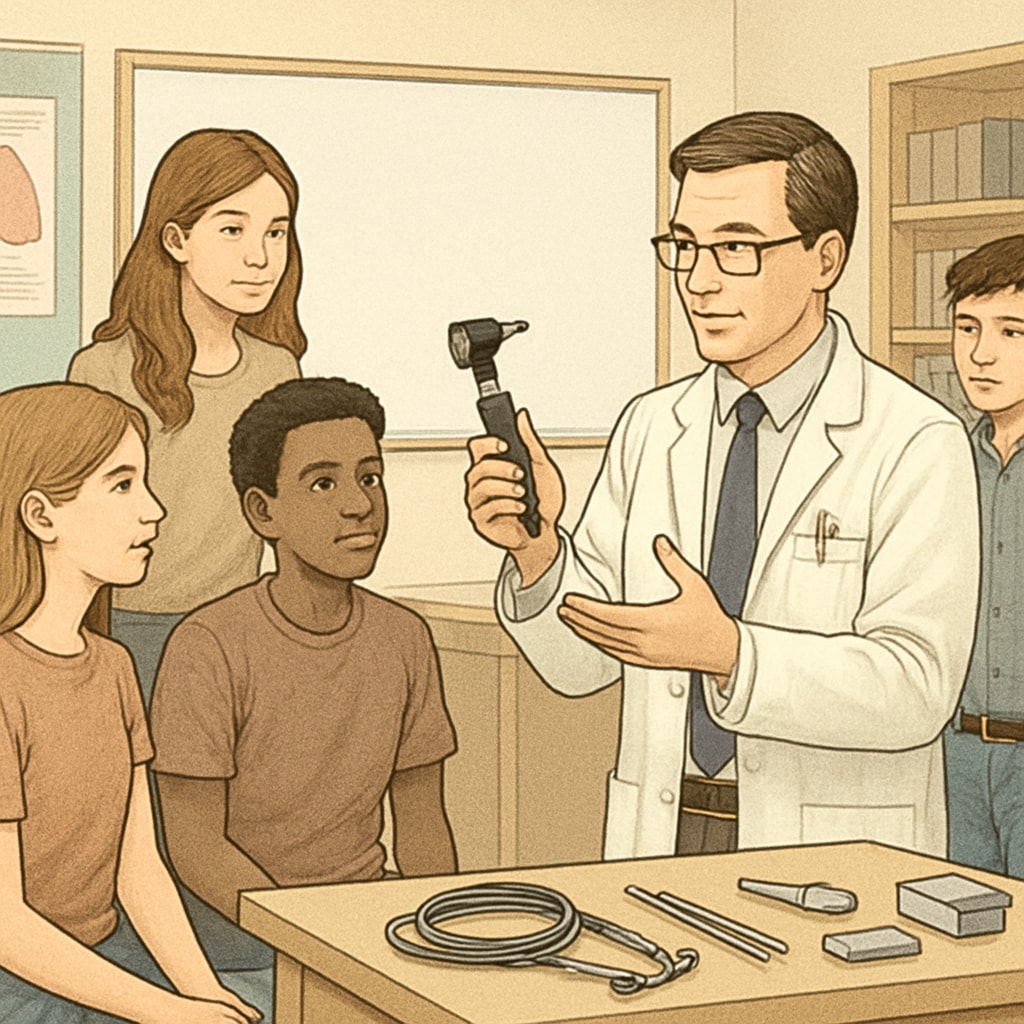Career counseling in medicine during the K12 education stage can be a transformative experience for students. By incorporating “doctor interviews, career counseling, and medical education,” schools can help young learners build an early understanding of the medical profession’s challenges and rewards. This article explores the value of such initiatives, highlights the benefits of integrating practical exposure with theoretical knowledge, and provides actionable steps to create a systematic career exploration framework for aspiring doctors.
Understanding the Role of Early Career Counseling in Medicine
Early career counseling plays a pivotal role in shaping students’ perspectives about their futures. During the K12 years, students are in a formative phase, where exposure to various career possibilities can significantly influence their choices. Introducing medical career counseling at this stage enables students to explore their interests, understand the demands of the profession, and evaluate their own aptitude for the field.
For example, structured programs that include shadowing opportunities, interactive workshops, and panel discussions with practicing doctors can provide students with a realistic outlook on the profession. Such initiatives not only clarify misconceptions but also ignite passion and curiosity for the medical field among young minds.

Doctor-Student Interactions: A Window into the Medical World
One of the most effective ways to inspire students is through direct interaction with medical professionals. Doctor interviews and mentorship sessions offer invaluable insights into the daily realities of a medical career. These interactions allow students to ask pertinent questions, understand the ethical and emotional dimensions of the profession, and gain a holistic view of what it takes to become a doctor.
For instance, hearing firsthand accounts of a surgeon’s journey or a pediatrician’s experiences can help students connect theoretical aspirations with practical realities. Such opportunities also foster empathy and a deeper appreciation for the sacrifices and dedication required in the field.
To maximize the effectiveness of these interactions, schools can organize:
- Guest lectures and Q&A sessions with physicians of varying specialties
- Career fairs featuring medical professionals
- Small-group mentorship programs pairing students with local doctors

Developing a Systematic Medical Career Exploration Framework
While individual initiatives like doctor interactions are impactful, a comprehensive and systematic approach ensures consistency and effectiveness. Schools can implement a step-by-step framework for medical career exploration that includes:
- Awareness: Introducing students to the basics of medical education and the various career paths within healthcare.
- Exploration: Facilitating hands-on experiences such as lab visits, hospital tours, and volunteer opportunities in community health programs.
- Preparation: Guiding students through academic planning, including selecting the right high school courses, preparing for college entrance exams, and understanding the prerequisites for medical school.
Additionally, integrating technology—such as virtual reality simulations of medical procedures or online platforms for career counseling—can enhance the accessibility and engagement of these programs. For more on how technology shapes education, visit Educational Technology on Britannica.
The Long-Term Impact of Early Guidance
Early exposure to the medical profession not only helps students make informed decisions but also strengthens their commitment to the field. Students who understand the academic and personal demands of a medical career are better prepared to navigate challenges, from rigorous college pre-med programs to competitive medical school applications.
Moreover, fostering an early interest in medicine contributes to a more diverse and passionate healthcare workforce. As students from varied backgrounds gain access to career counseling and mentorship, the medical field benefits from a broader range of perspectives and talents.
In conclusion, integrating “doctor interviews, career counseling, and medical education” into the K12 curriculum is an investment in the future of healthcare. By providing students with the tools and guidance they need, educators can help shape the next generation of dedicated and compassionate medical professionals.
Readability guidance: This article uses concise paragraphs and lists for clarity. Transition words such as “for example,” “in addition,” and “as a result” are woven throughout to ensure smooth flow. Passive voice is avoided where possible, and technical terms are explained in simple language.


